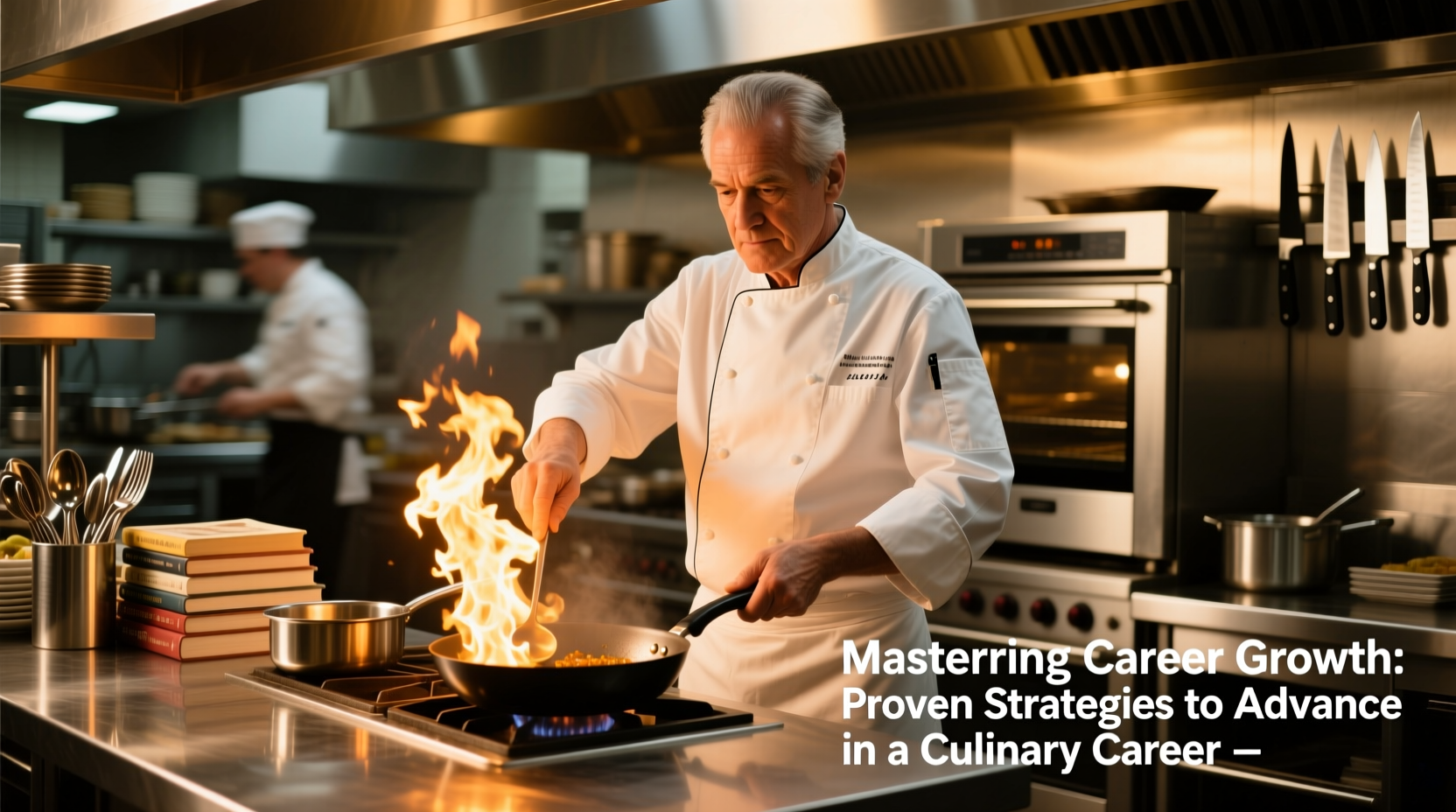The culinary world is as competitive as it is passionate. Advancement doesn’t come solely from mastering knife skills or perfecting sauces—it’s driven by deliberate choices, continuous learning, and strategic networking. Whether you're a line cook aspiring to become an executive chef or a sous chef aiming for ownership, long-term success requires more than talent in the kitchen. It demands planning, resilience, and a proactive approach to professional development.
Build a Strong Foundation Through Experience

Every great chef started at the bottom—peeling vegetables, prepping stocks, cleaning stations. These early roles are not just about survival; they’re foundational. Exposure to different stations, cuisines, and service styles builds versatility and deepens understanding of kitchen dynamics.
Working across multiple kitchens—fine dining, casual, hotel, pop-up—exposes you to diverse management styles, operational models, and customer expectations. This breadth of experience becomes invaluable when making leadership decisions later in your career.
Thomas Keller, chef and owner of The French Laundry, once said: “The most important ingredient in any dish is discipline.” That discipline starts with showing up early, staying late when needed, and treating every task—even the mundane ones—with precision.
Invest in Continuous Learning and Skill Development
The best chefs never stop learning. Culinary school provides a strong start, but mastery comes through ongoing education. This includes formal courses, certifications, workshops, and self-directed study.
Consider specializing in areas like pastry arts, fermentation, plant-based cuisine, or global regional cooking. Specialization can differentiate you in a crowded field and open doors to niche opportunities such as consulting, food styling, or product development.
| Skill Area | Learning Pathways | Career Impact |
|---|---|---|
| Precision Butchery | Workshops, apprenticeships, charcuterie courses | Leadership in protein stations, menu innovation |
| Pastry & Baking Science | Certifications (e.g., CMB), online programs | Opens path to executive pastry chef roles |
| Sustainable Sourcing | Farm visits, supplier partnerships, seminars | Enhances menu storytelling and brand value |
| Food Safety & HACCP | Online certification, health department training | Required for supervisory and managerial roles |
“Cooking is just one part of the job. Understanding food cost, labor efficiency, and guest psychology—that’s what separates good cooks from great leaders.” — Chef Maria Chen, Executive Chef at Terra & Vine
Create a Clear Career Advancement Plan
Advancing without direction leads to stagnation. A clear career plan helps you identify milestones, track progress, and stay motivated. Begin by defining your long-term vision: Do you want to run a Michelin-starred restaurant? Open your own concept? Become a culinary educator?
Step-by-Step Guide to Building Your Plan
- Assess your current position: What role do you hold now? What skills do you have? Where are the gaps?
- Set 1-year, 3-year, and 5-year goals: Be specific. Instead of “become head chef,” say “attain sous chef role at a high-volume fine dining establishment within 18 months.”
- Identify required competencies: Leadership, budgeting, inventory management, staff training.
- Find mentors: Connect with chefs who’ve walked the path you want to take.
- Track progress monthly: Review achievements, adjust timelines, seek feedback.
Leverage Networking and Mentorship
In the culinary industry, who you know often matters as much as what you know. Networking isn’t about collecting contacts—it’s about building relationships. Attend industry events, join local chef associations, participate in charity dinners, and engage on professional platforms like LinkedIn.
Mentorship accelerates growth. A seasoned chef can offer guidance on navigating politics, handling promotions, or even negotiating contracts. Don’t wait to be approached—reach out respectfully, express genuine interest, and ask thoughtful questions.
Mini Case Study: From Line Cook to Executive Chef
Jamal Rivera started as a line cook at a mid-tier bistro in Austin. Over three years, he rotated through all kitchen stations, completed a ServSafe manager certification, and attended weekend workshops at a local culinary institute. He connected with a visiting chef during a guest chef series and began informal mentorship via email and occasional calls.
When a sous chef position opened at a new farm-to-table restaurant, Jamal was recommended by his mentor. Within two years, he became executive chef after impressing owners with his seasonal tasting menus and team leadership. His rise wasn’t accidental—it was the result of consistent effort and strategic relationship-building.
Essential Checklist for Culinary Career Growth
- ✔ Gain experience across multiple kitchen stations
- ✔ Complete at least one advanced certification (e.g., ServSafe Manager, CMC prep course)
- ✔ Attend two industry events or workshops per year
- ✔ Identify and connect with one mentor annually
- ✔ Update your resume and portfolio every six months
- ✔ Seek feedback from supervisors quarterly
- ✔ Develop leadership skills through staff training or scheduling duties
Avoid Common Pitfalls
Many talented cooks plateau because of avoidable mistakes. Recognizing these early can keep your trajectory upward.
| Do’s | Don’ts |
|---|---|
| Take ownership of mistakes and learn from them | Blame others for kitchen failures |
| Arrive early and stay until the job is done | Leave as soon as your shift ends, regardless of workload |
| Ask for help when needed | Pretend you know everything |
| Respect hierarchy while contributing ideas | Challenge authority publicly or disrespectfully |
One of the most damaging myths in kitchens is that working harder automatically leads to promotion. In reality, visibility, reliability, and emotional intelligence matter just as much. Be the person others trust during crises—the calm voice during ticket rushes, the one who notices when a teammate is overwhelmed.
FAQ
How long does it typically take to move from line cook to executive chef?
On average, it takes 7–10 years of progressive experience, depending on the individual, the restaurant environment, and opportunities for advancement. Some accelerate faster through mentorship, specialization, or working in high-volume establishments.
Is culinary school necessary for career advancement?
While many successful chefs are self-taught, culinary school provides structured learning, access to networks, and credibility that can speed up promotions. However, exceptional performance, certifications, and real-world experience can compensate for lack of formal education.
What should I include in my culinary portfolio?
Your portfolio should feature signature recipes, menu contributions, photos of plated dishes (if permitted), awards or recognitions, letters of recommendation, and a list of relevant trainings or certifications. Keep it concise—10–15 pages max.
Conclusion
Mastering career growth in the culinary world isn’t about waiting for recognition—it’s about creating opportunities through skill, strategy, and relationships. Technical excellence gets you in the door, but leadership, adaptability, and foresight determine how far you go. The most successful chefs treat their careers like a well-balanced dish: equal parts passion, precision, and patience.









 浙公网安备
33010002000092号
浙公网安备
33010002000092号 浙B2-20120091-4
浙B2-20120091-4
Comments
No comments yet. Why don't you start the discussion?